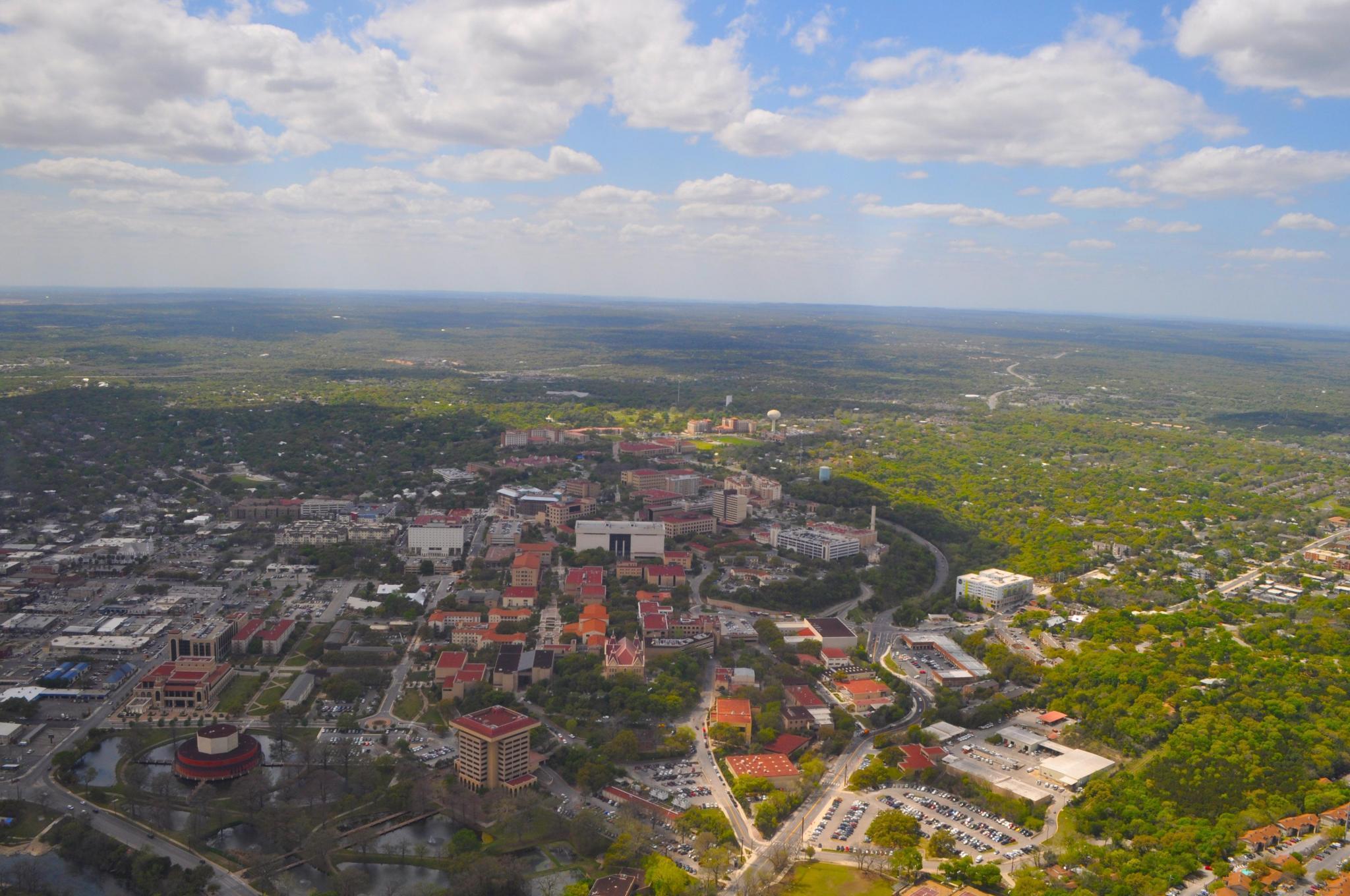
Daily Record photo by Toy Mendez
Study ranks San Marcos among most financially impacted college towns during virus crisis
San Marcos ranked ninth in a study of college towns most economically impacted by COVID-19, and in the most impacted fourth of college towns for four of their six metrics.
Though efforts to slow the spread of COVID-19 across the U.S. have impacted local economies and residents heavily, college towns are among the most vulnerable. A data journalist for SmartAsset, Stephanie Horan, says they are confronting potentially major losses in population and revenue if students do not return to campus. Even in towns where schools have decided to allow students back in the fall, there may continue to be dampened demand for typical collegiate expenditures such as eating out and attending sports games.
The study found San Marcos has the fourth-highest student population relative to the city’s population, 23rd highest concentration of entertainment establishments, 13th highest concentration of bookstores and 18th highest concentration of hotels.
Horan also measured college staff as a percentage of total workers and concentration of bookstores when measuring economic vulnerability.
In this study, Horan found the places that are most dependent on the presence and spending habits of undergraduate populations. They compared 95 college towns with populations of 50,000 or more across the six metrics.
The study revealed many Midwestern and Southern college towns were most economically vulnerable. Of the top 11 most vulnerable college towns in the study, four are in the Midwest and five are in the South.
The 11 most vulnerable college towns were in descending order of vulnerability: Bloomington, Ind.; College Station; Champagne, Ill.; Athens, GA; Flagstaff, Ariz.; Davis, Calif.; Ann Arbor, Mich.; Chapel Hill, N.C.; San Marcos; Ames, Iowa; and Auburn, Ala..
They also found small college towns are likely to be hit the hardest. The same 11 college towns identified as being most vulnerable during COVID-19 all have city populations of less than 125,000. Students and staff make up larger percentages of the population and workforce in those towns. More than two in 10 residents are undergraduate students in all 11 towns.
In San Marcos, 40.08% of the total population are students, 11.97% of workers are staff at the university, 8.22% of all establishments are bars and restaurants and 1.88% of all establishments are entertainment establishments.
James P. Lesage conducted a study titled The Economic Impact of Texas State University in 2014 for the McCoy College of Business Administration and found that the impact of Texas State University on local, regional and state economies is greater than the direct spending by the university for payroll, goods and services and construction, and direct spending by Texas State students.
LeSage wrote, “This is because money spent by the University (and students) is spent by employees, businesses, and their workers. As employees purchase goods and services from businesses, these businesses make their own purchases and hire employees, who also spend their salaries and wages. Similarly, university expenditures with businesses give rise to additional business spending, and this sets in motion a chain reaction of spending that is labeled indirect and induced spending by economists.”
The annual economic impact of the university on Hays County from direct spending by Texas State, its employees and students was $1.1 billion per year in 2014 and 17,000 jobs.
For Central Texas, that number was $1.6 billion per year at 23,000 jobs and for the state of Texas, $2.2 billion and 29,000 jobs.
Visit smartasset.com/checking-account/college-towns-most-vulnerable-during-covid19-2020 to view Stephanie Horan’s full study.
Visit txstate.edu/prospectiveflash/pdf/economic-impact-study-2014.pdf to view James P. LeSage’s full study.











